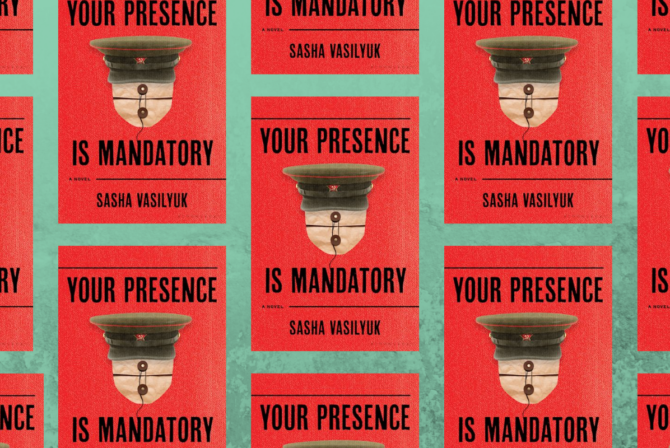April 2012: I am very, very dizzy. I close my eyes when we drive across bridges, because it looks like the right-hand side is slicing the car in half. I am dizzy at night when my head feels like it goes back several feet before reaching the pillows. I am sick when I drive, squinting my right eye roughly so I can focus on the road.
One night I am dizzy enough that my 10-year-old son calls his friend’s father to take me to the ER. Their daughter watches my kids, who must have been terrified. I can’t bear to think of it. I cover my eyes in the ER, drink a sip of water, and instantly vomit it up on my shirt. I finally get an IV because I am so dehydrated, as well as a mega-dose of Meclizine. I am dizzy for weeks, but I ignore it. I drink huge amounts of water and cut out caffeine in an attempt to feel steady. The Meclizine, the gold standard for vertigo I am prescribed, does not work at all. Eventually I feel normal again and chalk the incident up to a weird after-40 situation.
March 2013: I drive to school and head to my science lab, preparing for a meeting with a colleague to plan for the outdoor classroom I am designing. I have been dreaming about this day for months, and have been writing grants all year to get the funding for this project, and I can feel my head throbbing.
I know I will have terrible vertigo today. I feel like Katniss when she is stung by tracker jackers. Everything around me is shiny and bubbles up, and the walls curve in. I hold my head very, very still through the meeting and say almost nothing. When it is time to shake hands, I collapse on the floor and my colleague somehow gets me to the nurse. I vomit for the next hour every time I try to raise my head.
I am scared and horribly embarrassed. If I can’t get to the hospital on my own, the school will have to order a lockdown so an ambulance can get me. After another hour, this is what happens. I am mortified. What kind of adult woman can’t lift her head or open her eyes? How can I take care of my family or teach my classes? I receive IV fluids, again, and this time the ER gives me Ativan, which is a godsend. The doctor holds my hand, which is clamped in a death-grip over my eyes, and tells me that I must see an ENT immediately. I listen.
April 2013: The ENT cautiously diagnoses Ménière’s disease, an unlucky stew of extra liquid that lurks in the middle ear and causes vertigo. My mother has it, and has managed it for years with an occasional dose of Valium. Just for good measure, the ENT signs me up for a hearing test and an MRI. Doctors like to say that when they hear hoofbeats, they look for horses, but every once in a while, they get a zebra. I get the MRI and manage to sleep through the bizarre sound of magnets droning and humming through my 80s-style headset. A few days later, I have the hearing test. It culminates in a vicious attack on both ears with puffs of cold and hot air. Nothing can be more horrible than a thin stream of air pushing inside your ear until you are too dizzy to move. The audiologist thoughtfully tells me that my left ear is doing something very wrong. I am too ill to care. A friend drives me home, and a merciful Ativan restores me to standing.
A few days later, I head to San Antonio, Texas. I have won an award for new science teachers and am attending my very first NSTA Convention. Every moment of the convention is amazing to me–a day-long class on monarch butterflies, seminars on outdoor classrooms, and sessions on making slimes and potions. I am in heaven, even after the ENT calls to say we need to discuss the MRI results as soon as I am in back in New Jersey.
May 2013: The ENT tells me I don’t have Ménière’s after all. It’s a zebra I’ve got. He thinks it is a vestibular Schwannoma, a crazy growth on my vestibular system that is causing all the vertigo. I have just seen and loved the movie 50/50, so the word Schwannoma is familiar to me. A dear doctor friend suggests I go to the vestibular Schwannoma gurus at the University of Pittsburgh. Their gamma knife will remove it without surgery and my family can spend a week in one of our favorite cities in our favorite hotel, the William Penn. I begin to enjoy my imaginary holiday of a quickie gamma knife slice, followed by delicious meals at Pamela’s and more visits to the Children’s Museum in Pittsburgh, one of my favorite places on Earth.
But the Schwannoma is not a Schwannoma. The next expert, and the expert after that one, tell me it is something else altogether. I have a brain tumor. The good kind of brain tumor, called a meningioma, almost always benign. It will be taken out in a hideous operation called a resection, and I can even work one month at camp, but my brain has a tumor and the tumor is at least an inch long. It has to come out, and the consequences include loss of hearing in my left ear. The consequences of leaving it in include the tumor pushing on my brain stem. Lights out.
June 2013: I work for a month teaching science at a Jewish summer camp, walking five miles every day in an effort to get myself strong for surgery. I listen to the birds in the Pennsylvania forest and I begin to indulge myself in a horrible, selfish habit: crying. I wear sunglasses all day and frequently cry as I walk. I cry when I buy extra glue for my slimes at Walmart, I cry driving there and I cry myself to sleep. My eyelashes crust together in the morning. The skin on my lips and chin is always salty.
I lie awake in my cabin and wonder why this is happening to me. My hobbies are my family, teaching my classes, and baking treats. I don’t smoke, drink, and my car could drive itself on my circumscribed life route, a tiny little vine that I love and cling to with an embarrassing gratitude. How did the brain of a good girl grow this? What will happen to my brain after surgery? Could I die? What happens to the world I have made if I am no longer in it?
July 2013: I write a sad little will on the night before surgery:
Will of Rebecca K. July 24, 2013
God forbid we should need this.
My husband will raise our children in a loving, Jewish home with the values we share and have discussed many times. I expect our children to remain in a Jewish school and that is my request.
All of my assets will become the property of my husband. My personal possessions can be divided between our three beautiful children and my hope is that no one fights over anything.
If anything happens to me as a result of this surgery, I am so sad and sorry to miss your lives. My children have been the source of my greatest happiness and joy. I would have done anything possible to watch you grow to be the fine adults I know you will be.
I love you all more than life, and I always will. I had the happiest life of anyone in the world.
My husband takes me to the hospital at 5:30 a.m. and within an hour I am alone and being prepped for surgery. As they put me under anesthesia, I lose control altogether and scream, “I am so scared!” It is the last thing I will hear with my left ear.
I awaken from surgery and I am alive, alive but definitely mostly deaf in my left ear. I vomit for hours that first night in the ER, and puke up every drop of the sugary, lemony tea I desperately want to drink. I have my first hallucination, brought on by morphine: I feel dozens of staples behind my ear (true), but become convinced the staples have been attached to a Chinette plate, not to my skull at all. I wonder idly why the surgeons would go to so much trouble to insert a plastic plate under my skin, and wonder how they will remove it with the staples. I try to ask the ER nurse about the plate but she tells me to sleep.
The next night I am certain there is a mouse in the hospital room. I hear it so distinctly and see it the next day eating the lunch I cannot bear to eat. My nephew holds up a spoon, which he thinks proves the mouse is not a mouse, but I remain certain there is a mouse.
The last hallucination is the oddest of all. I took a favorite old photo to the hospital, one that frames my three children years ago, the now-7-year-old is just a newborn in the middle. Behind them is a flowering rhododendron. In the years I have looked at this photo, I never noticed a creature deep in the bush, shaking the flowers and staring out at me.
I immediately ask to stop taking the morphine and the horrible burning anti-nausea medicine that follows the morphine.
The neurosurgeon will not let me see the tumor, but describes it as looking like Silly Putty. This is especially interesting to me because my campers love to make Silly Putty. Add 1/3 cup of Sta-Flo liquid starch to a 1/3 cup of Elmer’s Glue-All and food coloring. Stir it and you’ll get a nice string concoction, apparently a lot like a brain tumor. Roll the putty in your hands and you will soon have a wonderful Silly Putty that will pick up newsprint, just like the real stuff.
I am released just three days later, and I am giddy with relief. I am still deaf but I feel fine otherwise and make plans to go to the track later in the week. Ha, ha, ha. Later in the week I am going to be rushed back to the hospital.
The next few days that follow are so epically awful they defy description. Waking up in a pool of sweat and 103 degree fever, headaches so terrible that I can’t open my eyes, and a pervasive fear that my life is over…what seemed like chemical meningitis turns out to be, more likely, a combination of a terrible urinary tract infection (the fevers) and a mastoid bone infection (the headaches). Copious amounts of steroids, IV antibiotics, and a shot of Dilaudid saved me.
Three weeks later, and I’m still half-deaf, full of staples, and really tired. But I’m not crying anymore.
Like this post? Get the best of Kveller delivered straight to your inbox.







